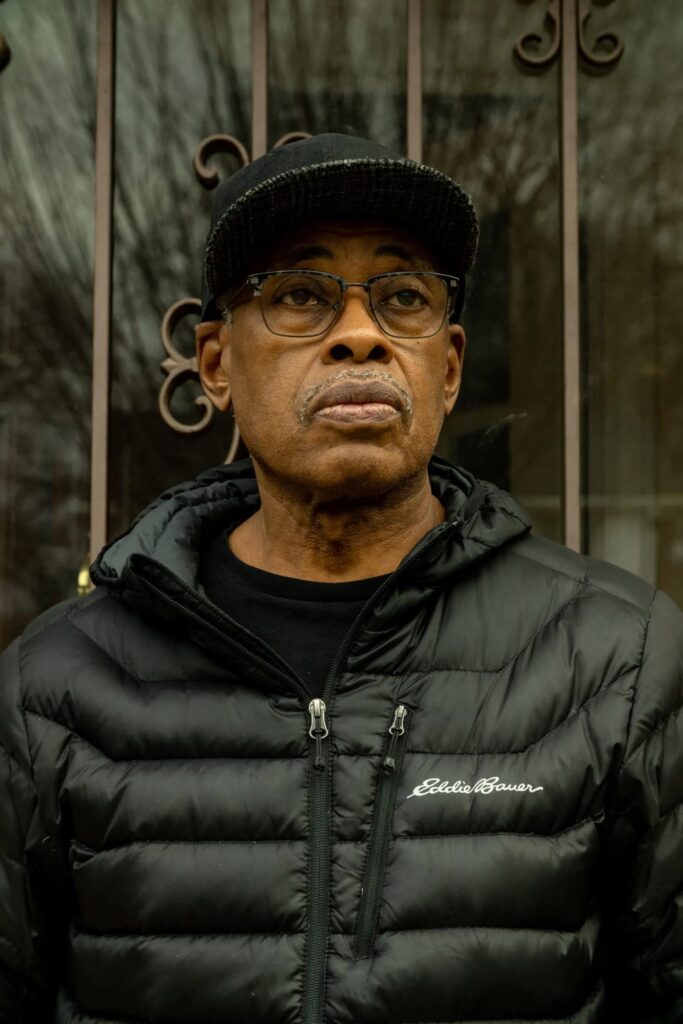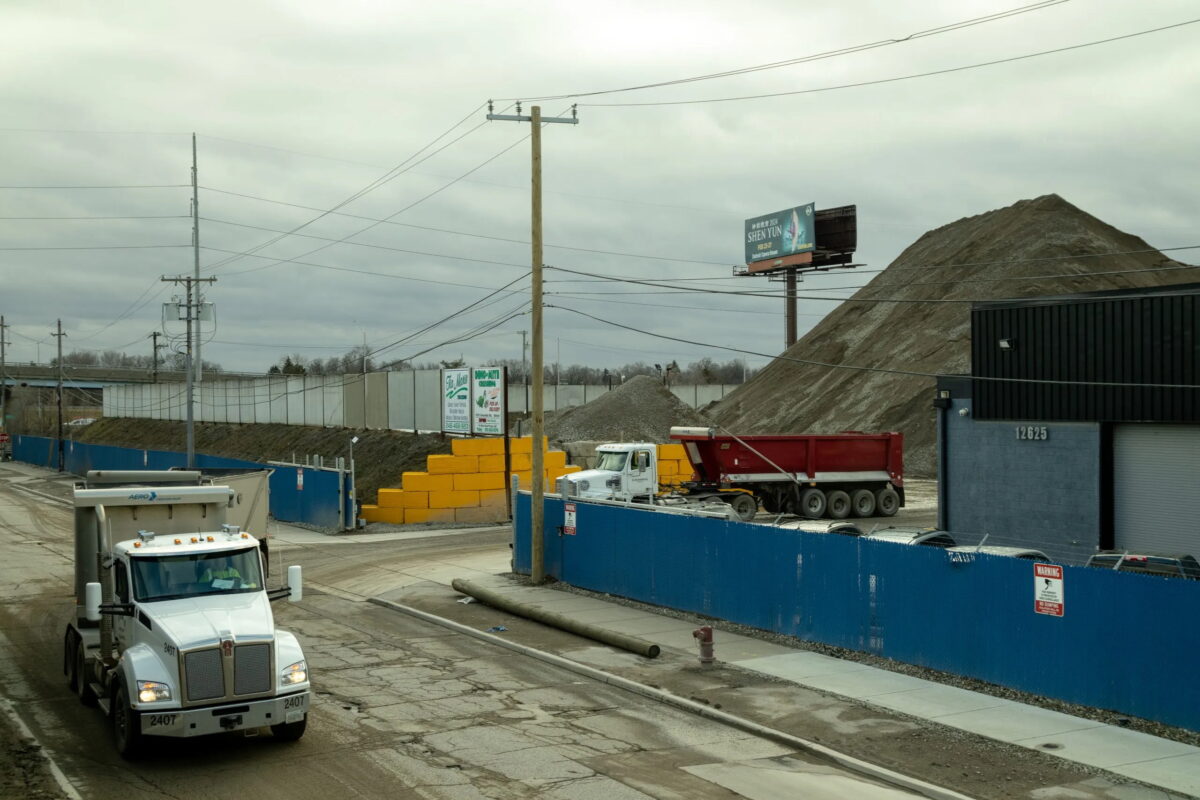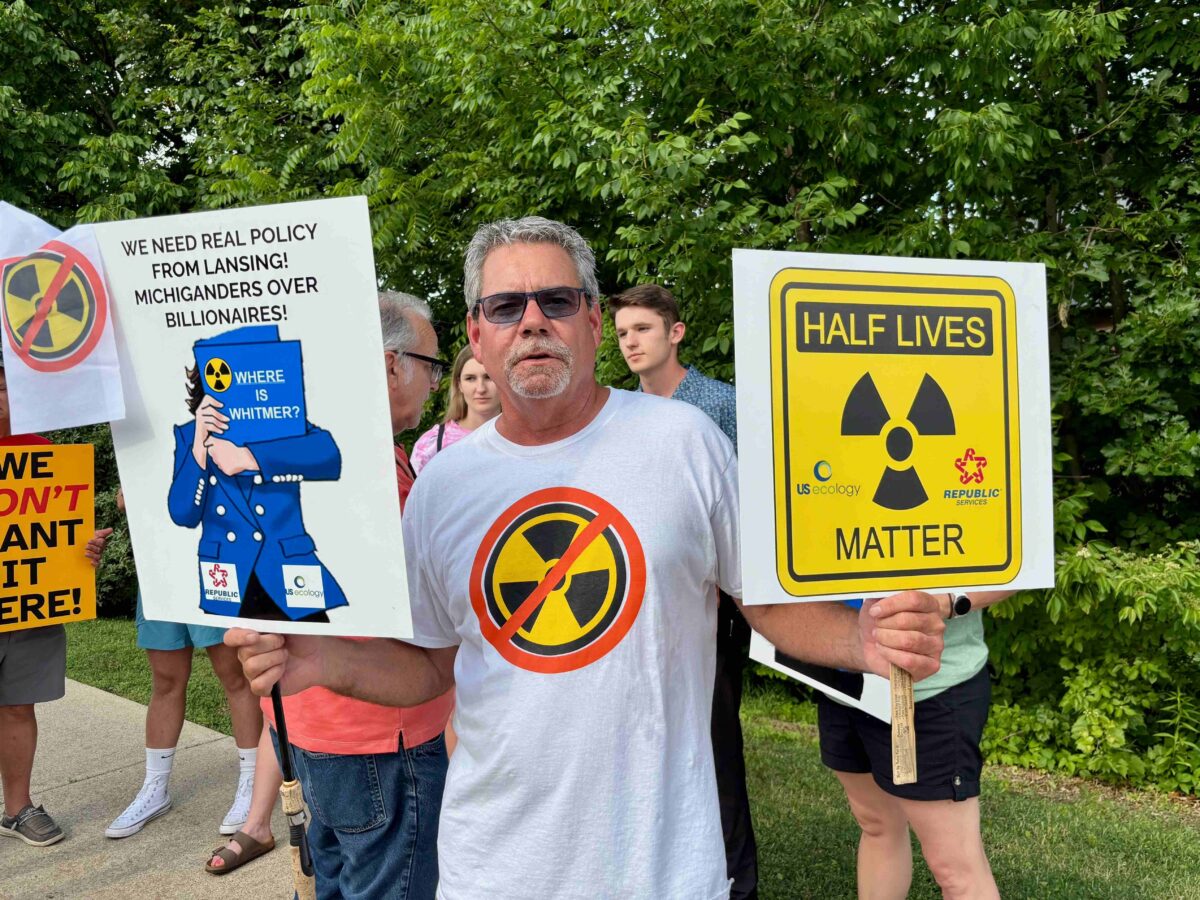Overview:
-Residents on Detroit's west side voice concerns over new settlement between city and Greenfield Supply Center.
-Agreement mandates the concrete crushing operation to contribute $25,000 to repave exterior roads, install irrigation, conduct quarterly dust testing, comply with new fugitive dust ordinance.
-'There's no community voice,' says Liz Jacob, staff attorney at the Sugar Law Center for Social and Economic Justice.
By JENA BROOKER
BridgeDetroit
A concrete crushing operation on Detroit’s west side with hundreds of blight tickets will step up its efforts to reduce dust as part of a settlement tied to a multiyear legal battle with the city.
Greenfield Supply Center, also known as Green Valley Properties, will be prohibited from using future properties it acquires in the city for concrete crushing, per the settlement. But residents who lobbied to have the operation shut down say the deal falls short of protecting the health of the community where the existing crusher is located.
Green Valley Properties operates Dino-Mite Crushing and Recycling on 12.3 acres in an industrial zone adjacent to the residentially zoned Schoolcraft Southfield neighborhood. Dino-Mite is permitted by the state to crush up to 600,000 tons of concrete each year at the property on Greenfield Road. Dino-Mite is owned by Anthony Calo, who also owns and operates Calo and Sons Construction: Trucking out of the Detroit site.
The city’s Buildings, Safety Engineering, and Environmental Department issued nearly 300 blight tickets to Green Valley over two years before submitting notice in 2022 to revoke the company’s land use permit for allegedly failing to secure permits for an expansion, not following its dust mitigation plan, and other offenses.
The city’s blight court overruled the notice. BSEED appealed and sent the case to the Wayne County Circuit Court. Judge Dana Hathaway then sent the case back to the city’s Department of Appeals and Hearings before the city’s law department settled out of the DAH in October 2024, a summary of the agreement indicates.
Per the summary, the city is requiring Greenfield Supply Center to contribute $25,000 to repaving exterior roads in lieu of the $135,290 the company owed on violations, according to a BridgeDetroit review. Other requirements include:
- Paving of interior roads for dust control by April.
- Installation of rumble strips by April.
- Irrigation of the site by spring.
- Conducting quarterly testing of fugitive dust starting in March.
City: We’ll enforce new fugitive dust ordinance
The summary of the settlement details were presented by Detroit’s top law official Conrad Mallett and BSEED officials to residents during a Feb. 20 meeting of the Schoolcraft Improvement Association and acquired by BridgeDetroit.
Mallett and BSEED officials did not respond to requests for comment.
During the meeting, Mallett said the decision was made to settle because he didn’t think the city or residents would get the outcome they wanted if they had to go to court again. Forming a consent agreement with Green Valley, he said, means the city is in a better place to immediately take the company to court if they violate any of the terms of the agreement.
“We think that we’re in a good position to be sure that the improvements that you have a right to expect get made and get made in a timely manner,” Mallett told attendees.
“We didn’t come into the decision to enter into the consent agreement with Green Valley because we did not think you were right and that you were not correct in being concerned.”
BSEED declined to release the full settlement without a Freedom of Information Act request. BridgeDetroit filed a FOIA request Feb. 26.
Michael Weiss, an attorney representing Calo, emphasized that the company was never in violation of its agreements. He pointed out that the Department of Appeals and Hearings made that determination.
“We are and have always tried to be good neighbors with the people in the community,” said Weiss.
“We are in full compliance with the city and that’s what we hope that the residents will understand and realize that we’re doing what we’re supposed to be doing. We’re employing people, we’re a good corporate citizen, and we’re not violating our agreements.”
BSEED officials told residents at the community meeting that they will be enforcing Detroit’s new fugitive dust ordinance, which requires businesses like concrete plants to submit dust control plans and follow stricter rules to protect public health. Fugitive dust is small particles of materials that are suspended in the air. Residents are advised to report fugitive dust to BSEED.
‘There’s no community voice’
George Perdue, president of the Schoolcraft Improvement Association, said the settlement wasn’t what he and other residents wanted to see. At multiple city hearings and meetings, residents pushed for Green Valley’s permit to be revoked and the concrete operation shut down.
“Now that the city has come to this agreement, how do we – I hate to say this word – coexist with a concrete crusher right in our neighborhood?” Perdue said.
Residents have long complained of dust on their cars, windows, and homes, and expressed concerns about how it impacts their health. The plant is permitted by the state to contribute dust to the air and impact visibility by up to 5%-12%.
“There should have been some community support component to this settlement,” said Perdue.

George Perdue, a resident and president of the Schoolcraft Southfield neighborhood in Detroit , says the community doesn’t trust Dino-Mite Crushing and Recycling to properly mitigate dust from the concrete crushing operation near his home. Photo by Quinn Banks/BridgeDetroit.
Liz Jacob, a staff attorney at the Sugar Law Center for Social and Economic Justice, has been advocating for residents throughout the court battle. She said the agreement raises big concerns.
“There isn’t an actual ability for the community to play a role in accountability, and all of the mitigation measures outlined in the consent agreement only go until the end of the spring,” said Jacob. “What happens after that point is a big open question. What’s the monitoring going to look like?”
“There’s no community voice, no community accountability, no mitigation for folks who are already experiencing impact,” she added.“There’s no restitution for folks who are experiencing impacts.”
Freelance writer Alex Klaus contributed to this report.
THE LATEST FROM PLANET DETROIT
DTE, Consumers political contributions in crosshairs of Michigan ballot drive
Organizers say ballot measure is needed to break DTE, Consumers’ influence and improve reliability and affordability for Michigan ratepayers.
Michigan climate work finds new life after Trump cuts with state support
Michigan’s decision to repurpose American Recovery and Reinvestment Act funding empowers the MI Healthy Climate Fellows to continue their work after Trump administration slashes $400 million from AmeriCorps.
Belleville hazardous waste expansion proposal met with safety concerns: ‘350,000 residents within 10-mile radius’
Wayne Disposal makes headlines for bringing in Manhattan Project nuclear waste, raising concerns about impacts to waterways and public health.




